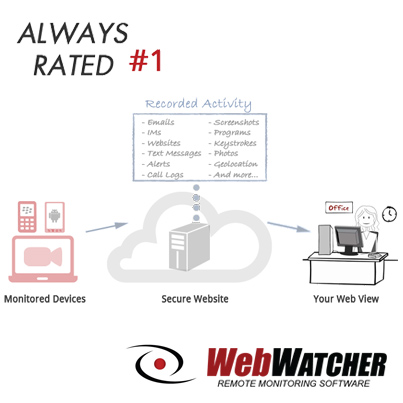The possibility of children and teens being approached by predatory adults has always been a concern for parents, and since the advent of the internet, online predators have been a concern as well. But in today’s world, children are online nearly as soon as they can hold a phone in their hands, and by late elementary school or middle school, much of their social life is taking place online. Is it safer now, or more dangerous? How can you protect your children and teens? What should you watch for, and what lessons should you teach your children about protecting themselves online? Take a look at some of the things that you need to know.
What’s the Risk?
Assessing your child’s risk of encountering online predators is tricky. There are many factors involved, and they can vary from child to child based on individual situations. But generally speaking, children are more at risk when they’re younger, when they’re allowed a lot of unsupervised time on the internet, when they’re socially isolated from their peers, or when their home life is complicated or turbulent, to name a few risk factors. However, even parents who seem to be doing everything right can be surprised to learn that their child has been communicating and interacting with an online predator.
Predators often look for targets that seem lonely, angry, or troubled. They tell their targets the kinds of things that they want to hear in order to gain their trust. They manipulate children and teens into believing that the predator’s exploitation of them was their own idea, or that it was something that they deserved and will be blamed and even punished for if they reveal it. And ultimately, any child could be potentially vulnerable, so every parent must be aware of the signs that their child is being abused or exploited online.
Signs That Your Child is In Contact With an Online Predator

It’s important to keep in mind that a child who is being abused or exploited online is not doing something wrong themselves – the predator is to blame for the situation, not the child. But when you don’t have all of the information, a child who has been in contact with an online predator may seem defiant or disobedient, as if they’re the ones doing something wrong.
For example, children in this situation may become very secretive about their activities online. They may seem obsessed with being online, determined to spend as much time as possible on their computers or smartphones, and they may become very angry when prevented from going online. They may even disobey an order to stay offline or sneak around to access a prohibited device.
Why would a child who has been in contact with a predator behave this way? Predators may blackmail children and teens. They coerce a child into doing something compromising – for example, taking an explicit picture of themselves and sending it to the predator. Once the predator has that compromising piece of evidence, they’ll threaten to use it – send it to the child’s parents, their school, their Facebook friends, or even the police – unless the child sends more photos, or takes videos, or does something else. The more material the predator has, the more blackmail opportunity they have. Since they’ve convinced the child that they’re the ones at fault, the child naturally wants to prevent their parents from finding out. If the predator places time limits on their demands, the child is under pressure to provide whatever the predator is demanding by a certain time, so being limited from devices or from the internet at large can seem to have dire consequences – consequences that they’ll go to great lengths to avoid.
Children who have been in contact with an online predator may also seem depressed and may isolate themselves from family or friends. You may notice that they receive gifts through the mail that they can’t explain or phone calls from numbers that you don’t recognize.
How Parents Can Protect Their Children
One of the most important things that parents can do to protect their children is to teach them how to protect themselves. Most parents would like to think that they can prevent their children from ever encountering a predator, but things can slip through the cracks even with the most protective of parents.
Speak to your children in an age-appropriate way about the potential dangers online. Let them know about the signs that a predator may be targeting them – undue attention from a stranger, communications from someone who refuses to post a picture of themselves or who gives contradictory information about themselves, requests that make them uncomfortable. Make sure that your child knows how to block and report anyone who makes them uncomfortable or seems suspicious on any site or app that they use regularly. Stress that your child can come to you with anything that’s troubling them, and let them know that they’ll never be in trouble for being manipulated or bullied into doing something embarrassing by an adult.
You should also make sure that you’re aware of the sites and apps that your child uses regularly. Don’t just know their names, look them up. Check out reviews by other parents. Talk to your child about specific dangers posed by specific sites.
Computer monitoring software can also help you keep your child safe. Internet monitoring software that allows you to see your children’s activities, check their messages and chat logs, and see their call history can alert you to signs of a problem so that you can put a stop to it before it goes too far. Talk to your child about internet monitoring. Explain that you’re not spying on them, but you need to be able to see what’s going on so that you can keep them safe. Reiterate that monitoring is a condition of allowing them to have and use the devices you give them and the internet that you pay for. To find out more about how parental monitoring software can protect your children, get our free trial





